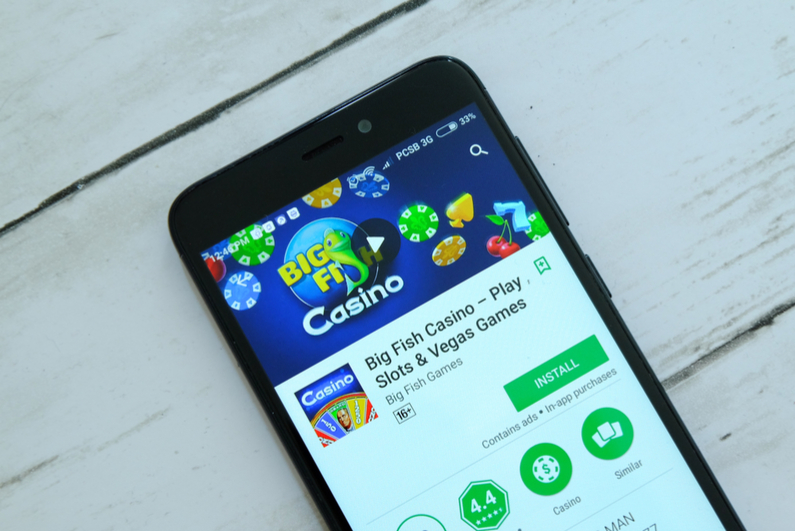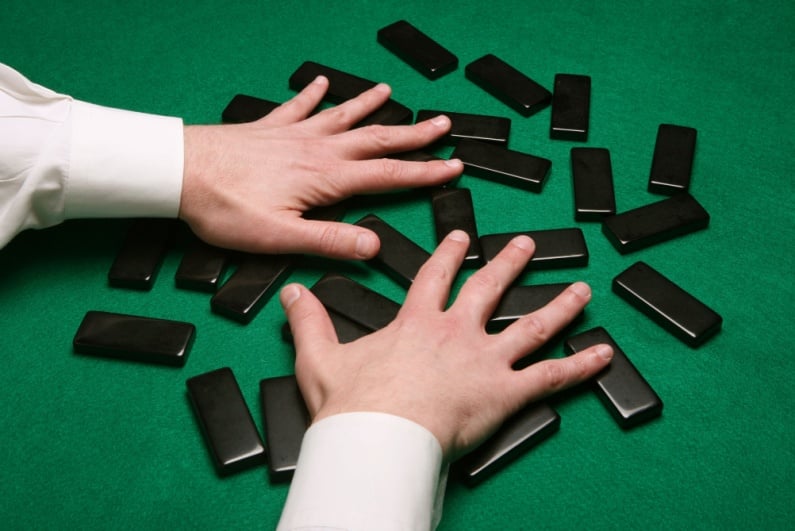30-second summary
- Big Fish Casino allegedly offers tokens with an assigned value
- Virtual chips cannot be cashed out; players must buy more chips to keep playing
- Second lawsuit against Big Fish Casino in which plaintiff seeks to recover losses
- Owner Aristocrat Leisure vows to fight the lawsuit
A mobile gamer has launched a class action lawsuit against online gaming platform Big Fish Games Inc. The lawsuit alleges that the free playing chips offered in some of Big Fish’s casino games have a monetary value.
The plaintiff has filed the lawsuit for herself and “a class of similarly situated individuals.” A similar lawsuit originally filed in 2015 is still being appealed.
Casino chips “a thing of value”
Manasa Thimmegowda, of Florida, filed a civil suit on February 11 in Seattle in which her claim is “to recover her losses and to obtain the appropriate relief.” The class action lawsuit covers herself and “a class of similarly situated individuals.”
The suit is against current owner Aristocrat Leisure Ltd, which bought the game developer in early 2018 for US$990m (£758m) cash, and former owner Churchill Downs. Aristocrat Leisure said it would “vigorously defend” itself.
Thimmegowda’s case rests on the use of virtual chips that are available for free in many of the casino games on the Big Fish platform. Winners cannot cash out their chips for money, but players who run out of chips and want to keep playing have to buy more. The chips cost from around $1 (£0.77) to $250 (£191.5) for a bundle.
“Free to play” a misnomer
The lawsuit claims that selling tokens in so-called “free to play” games that have in-app purchases amounts to a game of chance. An earlier court ruling in Washington State agreed, and decreed that it was a “game of chance” and thus illegal gambling.
Thimmegowda claims to have lost some $3,000 (£2298) in play because she could not cash out her winnings, despite having paid money for her chips.
Her class action lawsuit states: “The proliferation of internet-connected mobile devices has led to the growth of what are known in the industry as ‘free to play’ video games. This term is a misnomer. It refers to a model by which the initial download of the game is free, but companies reap huge profits by selling thousands of in-app items.
“By operating Big Fish Casino and other similar online gambling games, defendants have violated Washington law and illegally profited from tens of thousands of customers. Accordingly, [the] plaintiff, on behalf of herself and a class of similarly situated individuals, brings this lawsuit to recover her losses and to obtain the appropriate relief.”
Christopher Dore, an attorney representing Manasa Thimmegowda, said: “As we allege in our complaint, the mobile gambling industry, by design, preys on consumers by bringing addictive gambling opportunities directly into their homes.”
The 2015 lawsuit
Another gamer filed a similar case against Big Fish in 2015, also in Washington State. Cheryl Kater alleged she had purchased $1,000 worth of virtual chips. Her lawsuit claimed that in-app purchases contravene the Recovery of Money Lost at Gambling Act and the Washington Consumer Protection Act. Both these are on the Washington statute books.
The district court judge threw out Kater’s case in 2016. However, she appealed and the Ninth Circuit US Court of Appeals ruled in March 2018 that Big Fish’s virtual casino chips could be classified as “something of value.” Even though the chips cannot be cashed out, the ruling means that under state law they are a gambling stake.
Appeal circuit Judge Milan D. Smith’s verdict has major ramifications for online casino games that provide virtual chips and in-app purchases of additional tokens. Indeed, the ruling has implications for all kinds of online games that offer in-app microtransactions and have an element of chance. This chimes with the ongoing regulatory rulings in Europe on the illegality of loot boxes.
Judge Smith’s decision included the memorable sentence: “Despite collecting millions in revenue, Churchill Downs, like Captain Renault in Casablanca, purports to be shocked — shocked! — to find that Big Fish Casino could constitute illegal gambling. We are not.”
Following the ruling, Aristocrat said in April 2018 that it would appeal. It claimed that there were “meritorious legal and factual defenses against [Kater’s] allegations and requests for relief.” It has filed the appeal with Churchill Downs.
No date has been set for a hearing into Thimmegowda’s lawsuit, but game developers everywhere will be following her case keenly. As with Kater’s suit, there are likely to be various appeals and the final outcome could be several years away.
Gaming giant
By any measure, Aristocrat Leisure is a giant in the gaming sector. Worth an estimated $15bn (£11.5bn), it could easily afford to buy out Churchill Downs to take over Big Fish, which is based in Washington State. The gaming platform has 12.4m active users a month.
The Australia-based Aristocrat has acquired a significant number of online social gaming companies lately. According to Krejcik Gaming, it is now the “second-largest social casino publisher globally by revenue.”
Aristocrat reportedly made a profit of $729.6m (£558.9) in 2018, up 34% year on year. Revenue was up 48% to a record high of $3.6bn (£2.8bn). Thimmegowda’s lawsuit alleges that Big Fish Casino has annual revenues of more than $100m (£76.6m), while all of Big Fish’s casino games together earn revenues of more than $200m (£153m).




